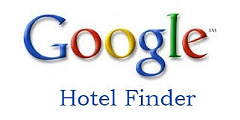UK-based direct-booking specialists Triptease have released a new report entitled "The US hotel website handbook: Boost conversion by knowing your guest" using data from millions of sessions on thousands of hotel websites during April-June 2018.
Some key findings:
- Booking value and conversion rate by website visitor region
- North American visitors to US hotel websites have a significantly lower mean booking value vs. site visitors from Asia - Pacific, EMEA (Europe, Middle East and Africa) or Latin America) - $762 vs. $1500-$1600.
- But North American visitors have the highest mean conversion rate: nearly 4.88%, vs. 2.76%-3.69% for others.
- Triptease analysts hypothesize that North American visitors are traveling short-haul and booking shorter stays, so face a less complex decisionmaking process.
- Recommendations: target upsells and extended-stay discounts to North Americans, offer overseas visitors exit messages with discount codes.
- Searching and booking behavior by device
- Across regions, most (58%-65%) hotel website search sessions are done using desktops.
- Visitors from North America were more likely to use mobile devices to search hotel websites (34% vs. 25%-27%), and also to book on hotel websites (16% vs. 8%-9%).
- Across regions, conversion rates were highest (3.55% - 6.50%) for visitors using desktops, lowest (0.90%-2.39%) for those using mobile devices.
- Hypotheses: hotel websites can be difficult to navigate on mobile devices, and consumers may consider desktops to be better suited to doing high-value transactions.
- Recommendations: Streamline website content and make necessary information easier to find for those using mobile devices.
- Booking behavior by hotel state
- Triptease presents data for hotels in these 10 US states: NY, SC, FL, MA, IL, CA, LA, NV, AZ, TX.
- New York hotels had the highest mean length of stay (3.6 days) and booking value ($1191), Texas hotels the lowest (2.0 days and $538).
- Conversion rates varied widely, from 3.33% for Florida hotels to 7.3% for Texas hotels.
- Hypotheses: New York hotels' websites get a lot of "speculative browsing" and multiple visits prior to booking.
- Recommendations: Texas hotels should offer upsells and extended-stay discounts, New York hotels should offer visitors exit messages with discount codes.
- On-site searching habits of website visitors by hotel state
- Consumers using Illinois hotel websites were most likely to search (39%), those browsing Louisiana hotel websites least likely (24%).
- Hypotheses: "A significant drop-off between users browsing and searching might suggest that your website is difficult to navigate or that your ‘Check Availability’ button is not prominent enough." [That seems counterintuitive to me: more use of site search probably indicates navigation problems. -DB]
- Searcher behavior by searcher city
- Triptease presented data from 8 US cities; Chicago, Miami, Dallas, Denver, Phoenix, Los Angeles, San Francisco and Las Vegas.
- Average lengths of stay ranged from 2.0 days (Las Vegas searchers) to 2.8 days (Chicago searchers).
- Average booking values ranged from $421 (Las Vegas searchers) to $914 (San Francisco searchers).
- Conversion rates ranged from 4.17% (Phoenix searchers) to 6.70% (San Francisco searchers).
===========================================================================
So, what in these findings can a hotelier beneficially act on, regardless of hotel location?
- Make sure your website is optimized for mobile devices as well as desktops, particularly in ways to make it easy for users to find key information and book.
- If your site gets a lot of "speculative browsing", make sure there's plenty of fascinating stuff to browse, about everything from the toiletries in your rooms to the restaurants and attractions within walking distance of your hotel - always with a call to action visible, and the close just a click away.
- If visitors to your site frequently use the search function: check your navigation for usability and fix if necessary. And study your search log to discover what people are searching to find - may surprise you.
- Offer upsells and extended-stay discounts to people who begin to book short stays and low-priced offerings.
- Do whatever it takes - without giving away the farm - to keep long-haul travelers and others who are browsing high-priced stays on your website until they book, like exclusive favored-guest discounts.
- To which I would add: use Google Ads Remarketing Lists for Search Ads to re-engage visitors who leave without booking. (Watch the video.)
And don't forget you can still get ACRO Global's free SEO audit of your site using the Google Lighthouse Tool, .and a risk-free 30-day trial of Google Ads.

 - David
- David


Comments on How consumers are using hotel websites in 2018